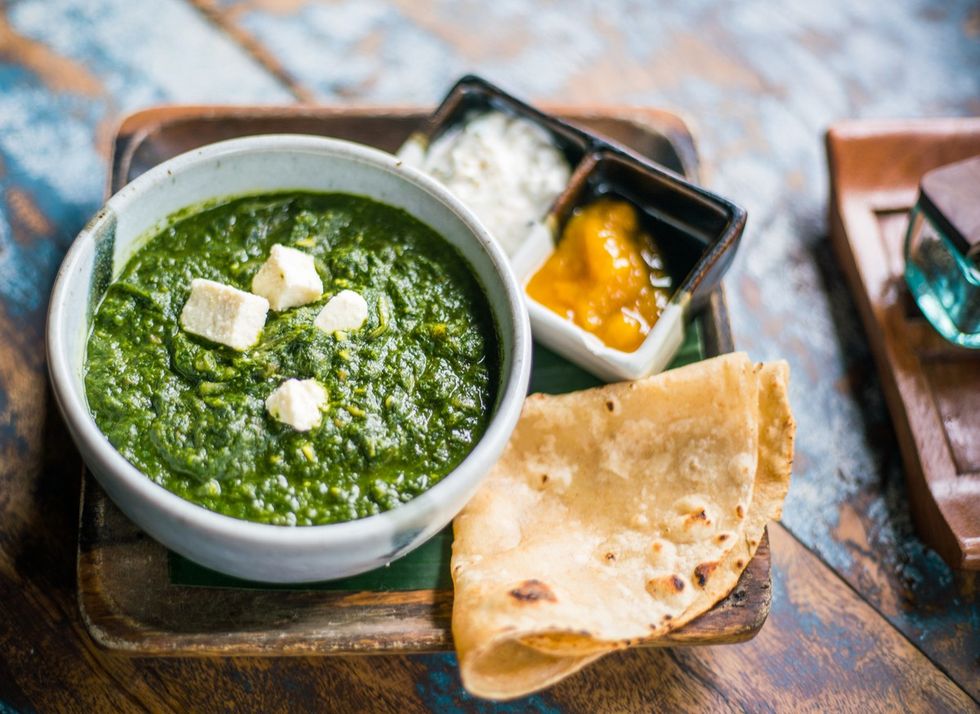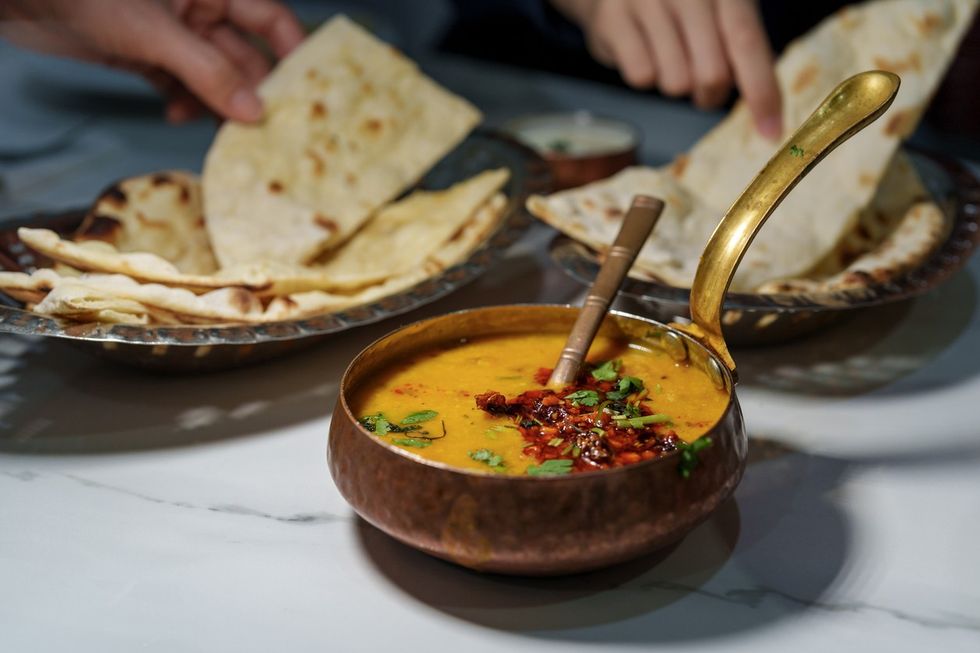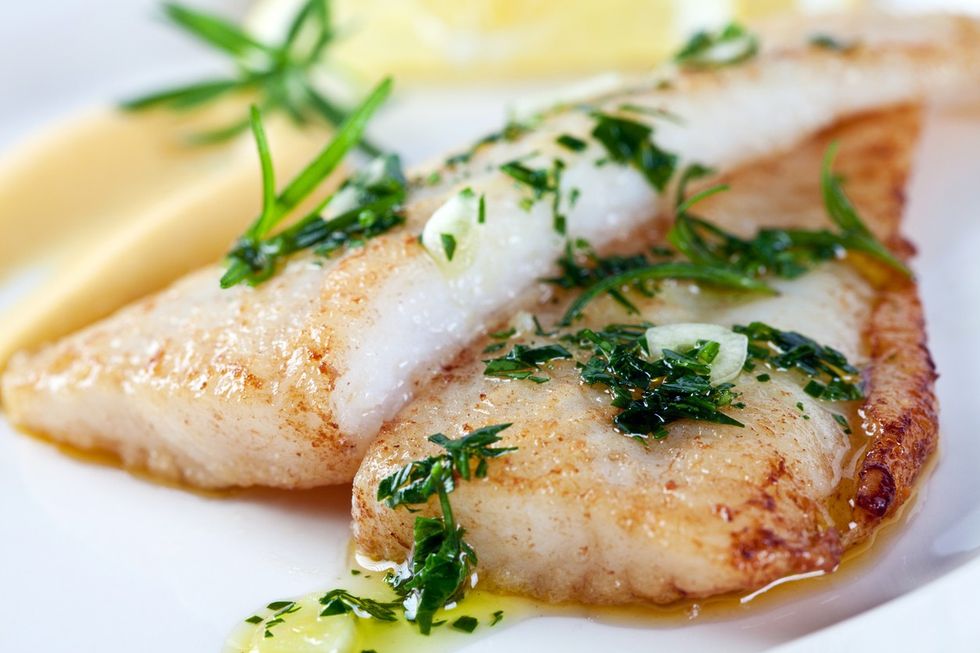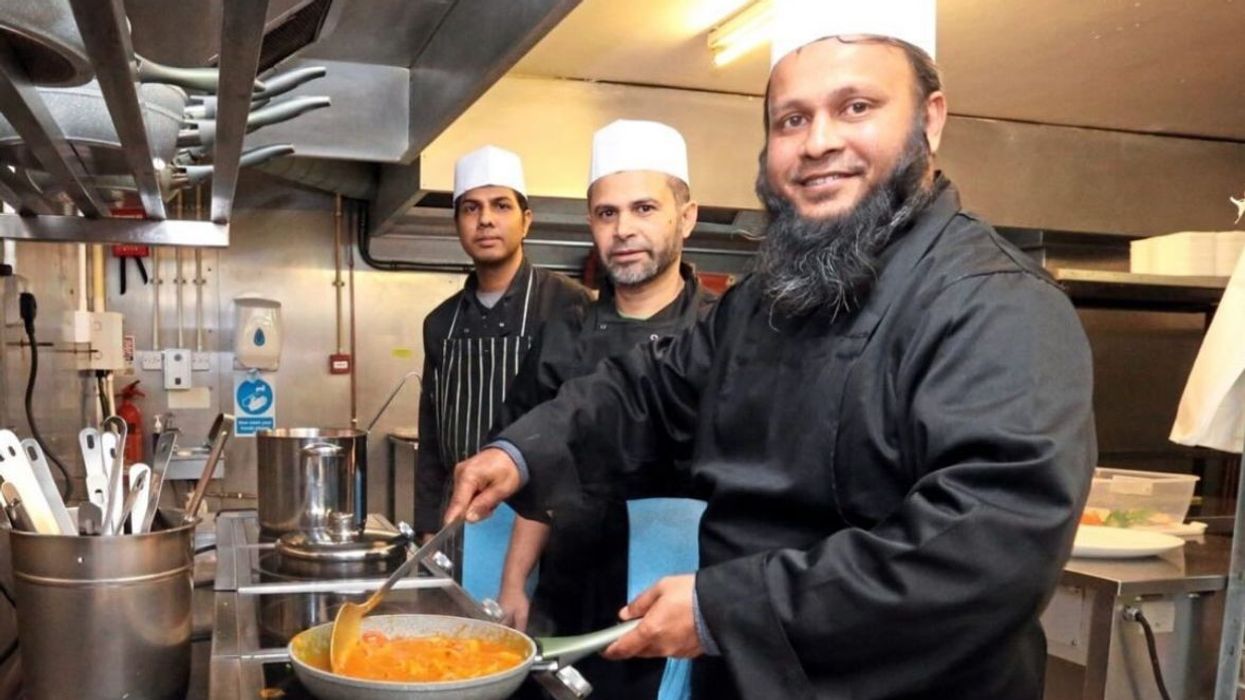It may be an essential life skill, but for many, cooking at home can feel intimidating – especially for beginners.
With the cost-of-living crisis, more people are choosing to prepare their own meals and experiment with dishes in their kitchens. Others, inspired by restaurant dishes, social media trends and the rise in home cooking during Covid-19, are now looking to improve their own culinary skills.

Eastern Eye joined this spicy trend by inviting acclaimed chef Sultan Al-Mahmood from the Grande Restaurant in London to share his expert cooking advice for all abilities.
With more than 30 years of experience – including cooking for celebrities, politicians and the Bangladesh national cricket team, as well as running multiple restaurants – the master chef offers simple, easy tips for making tasty and healthy meals at home.
Basics: Before diving into complex recipes, start by learning fundamental skills like chopping vegetables, boiling food such as pasta, and making simple dishes like omelettes. Also understand what different ingredients – especially spices – do. A solid foundation in the basics will set you up for success with more advanced cooking.
Recipes: One of the most common mistakes is not reading a recipe properly. Always read the full recipe before you begin to ensure you have all the ingredients and tools you need. Then follow the instructions carefully – including timings, portion sizes and temperatures.

Plan and prepare: A little planning goes a long way. Have all ingredients ready before you start – this includes cutting, peeling and chopping anything in advance. It will make the cooking process smoother and less stressful.
Organisation: A calm, clean and organised kitchen is far more efficient than a cluttered one. Keep your essential tools within reach, and clean as you go. A tidy workspace not only makes cooking more enjoyable but also means less cleaning up afterwards.
Safety: Always prioritise safety in the kitchen. Use oven mitts for hot dishes, turn pot handles inward, store knives properly and take care when handling hot oil or boiling water. Be mindful of flames and keep children away from potential hazards.
Ingredients: Use fresh, high-quality ingredients whenever possible. Fresh herbs, seasonal produce and good-quality protein-rich foods will elevate the flavour of your dishes and are usually healthier too.
Tools: A workman is only as good as his tools – and the same applies in the kitchen. Invest in good-quality knives, pots and pans. Many people continue using old or worn-out equipment, which can make cooking more difficult. Keep knives sharp for better and safer results.
Spices: Indian cuisine offers a wide variety of spices, yet many people use only a handful. Start learning about the different spices available and how they affect flavour. Gradually incorporate more into your cooking for better depth and variety.
Perfect pans: Avoid overcrowding the pan, as it can affect cooking time, temperature and taste. Always preheat your pan before adding ingredients – it helps prevent sticking and improves results. Heat: Understanding temperature is essential. Know the difference between low, medium and high heat, and learn how to control your oven or hob settings. Heat affects everything from texture to taste.

Embrace mistakes: Cooking is a lifelong learning process – even for professionals. Mistakes will happen. Use them as opportunities to improve your skills and confidence in the kitchen.
Get inspired: Social media platforms like Instagram, TikTok and YouTube are full of expert guidance in all cuisines. Use them to expand your knowledge and techniques. Recipe websites and blogs are also helpful learning tools.
Cooking classes: Join a cooking class to learn from experts. The sessions provide hands-on experience, build confidence and are often fun, social environments. There are more classes available now than ever before, including many that are focused on Indian cuisine.
Learn from elders: If classes are not an option, learn from older family members. There is a reason so many people say their parents cook the tastiest food – they have experience and are usually happy to pass it on.
Storage: Proper storage extends the life of both raw ingredients and cooked food. Invest in airtight containers and learn what belongs in each compartment of the fridge or freezer. Good storage habits reduce waste and keep food fresh.
Taste: One of your best cooking tools is your own palate. Taste your food as you cook – it helps you adjust seasoning and prevents surprises when serving. Also get feedback from family and friends to help improve your dishes.
Experiment: Once you are comfortable with the basics, do not be afraid to experiment. Try new flavours, cuisines and techniques. Most importantly, enjoy the process. The more you cook, the more confident you will become.
www.thegranderestaurant.co.uk & Instagram: @thegrande_stratford, Tiktok: @grandestratford




